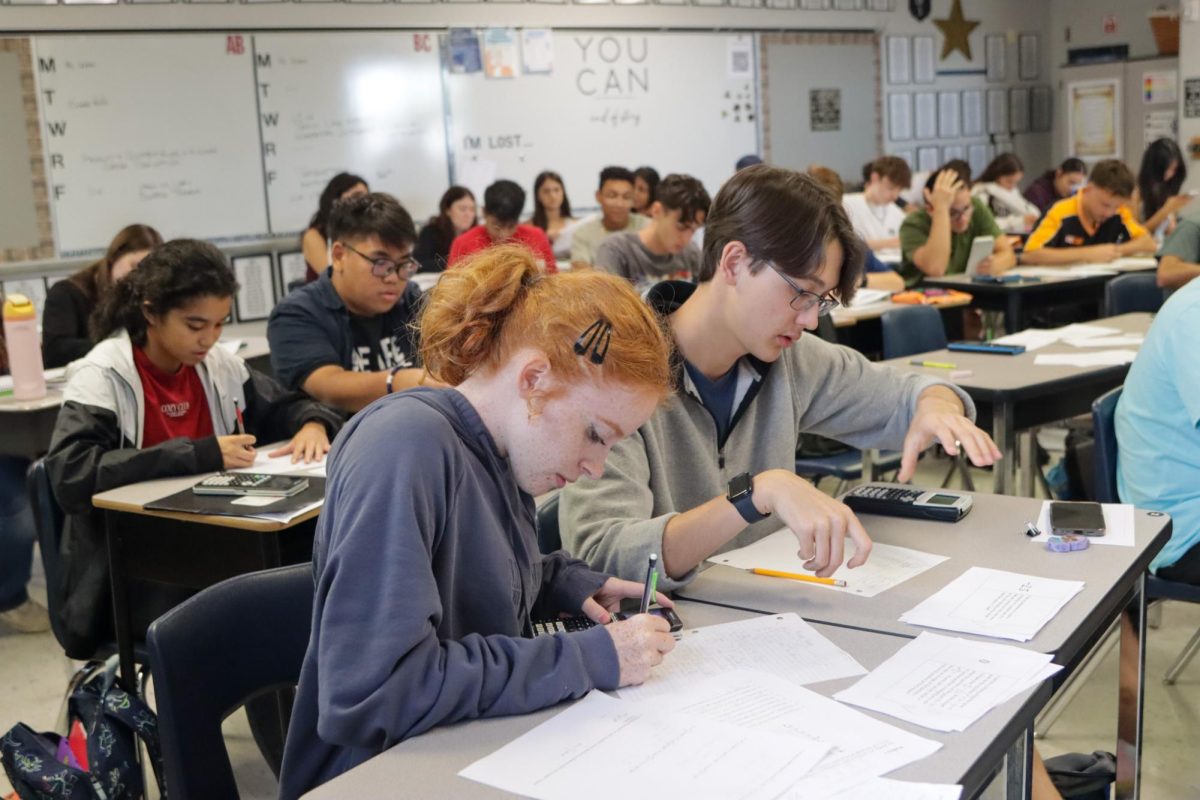Two math worksheets due on Tuesday. Seven World History packets due on Wednesday. A conjuguemos assignment along with grammar notes due Friday. When most students think of the end of the school year, they think of saying goodbye to their teachers and classmates, making exciting plans for their summer vacation, or even finally being able to get a good night of sleep—but the long list of assignments that are due back-to-back is a lot closer to the stressful and time-consuming reality. From the miserable exams to unnecessary extra assignments, the final quarter of the school year is an absolute mess that is merely disguised as an easy means to the end, and this time of year only causes the exhausted students more anguish.
Advanced Placement exams started May 6, but even as those classes wrap up, there are other classes with many loose ends that teachers like to smooth over before final exams happen. It is easier for teachers to assign more student-led assignments like a presentation or a creative poster that takes multiple days to work on than to give a short, one page worksheet, but with the exam season, this tactic quickly causes many issues. For starters, the make-up work policy allows for students who are absent to get however many days they’re gone plus one extra day to complete their assignments, but this doesn’t apply to the long-term projects that are being assigned. Students who have exams are simply expected to work around their absence and keep up with the work on time, even if they won’t be in school to complete it.
Now, there is nothing wrong with a few extra assignments at the end of the year. There are definitely students who could benefit from an easy assignment or two to boost their overall grade—but not everyone is in that situation. Not everyone has the time, or quite frankly, the energy to do dozens of assignments all while studying and preparing for a difficult exam. Some AP teachers assign study guides and quizzes to help their students familiarize themselves even more with the material, and while the AP exam itself might not affect the overall grade in the class, those assignments certainly will. Students who have these classes cannot just drop everything and work on something for a different class if they have to review for their exam. The exam study guides AP teachers typically assign are several pages to cover multiple units, and they take a long time to finish. Plus, not every student benefits from that way of studying, so some have to find their own way to study on top of completing the reviews.
On actual exam days, students get an excused absence for their remaining classes that day, but time management can be tricky when teachers assign different projects due the very week of these soul-crushing exams. How are these AP students expected to work on their other assignments when they’ll be testing that day? It is not fair to expect burnt-out students who have been testing for four hours to show up to class and work for a few more hours, nor would it be beneficial to the produced work’s quality.
Sure, AP courses are optional. Students don’t have to enroll in them. However, colleges are getting harder to get into, with the acceptance rate for Florida schools such as FSU and UF dropping steadily. AP classes show a student’s willingness to pursue a rigorous education, and naturally, that looks good to college admission officers. The school also receives money from the AP program, so these students are only allowing the school to benefit from their suffering. While AP classes are not required, they might as well be.
Even though it’s a stressful situation for teachers and students alike, teachers need to take into account the number of students out for testing, as well as the exam schedule. End of the year assignments are bound to happen, but when students are out testing, the work rules have to be more lenient, so AP students have the best chance to succeed.








